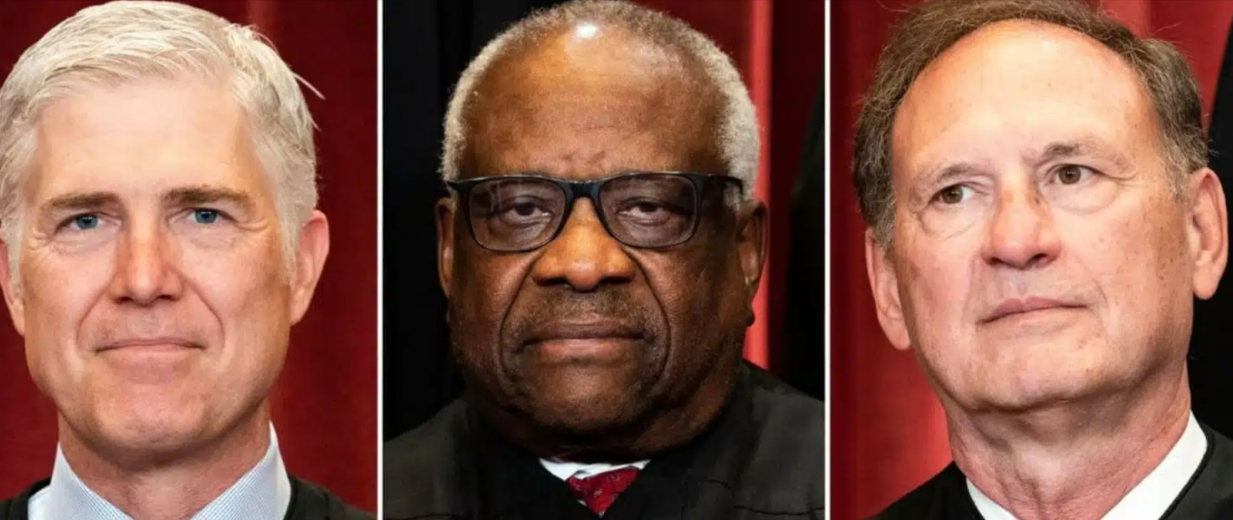Conservative Supreme Court Justice Responds to Calls to Retire

There is a growing effort among certain groups to pressure some U.S. Supreme Court justices into retirement. However, these attempts have not been successful so far.
Justice Samuel Alito recently made it clear that he has no intention of stepping down from the nation’s highest court.
“Despite what some people may think, this is a man who has never thought about this job from a political perspective,” stated a person familiar with Alito’s mindset. “The idea that he’s going to retire for political considerations is not consistent with who he is.”
Sources who provided information to the Wall Street Journal “tamped down speculation among legal activists that the 74-year-old jurist was readying to retire so that President Donald Trump could fill his seat with a younger conservative.”
Additionally, there have been calls for liberal Justice Sonia Sotomayor to step down. As the third-oldest member of the nine-seat bench, she has been open about managing type 1 diabetes throughout her life.
However, sources told the BBC that Sotomayor has no plans to retire.
“This is no time to lose her important voice on the court,” one individual mentioned to the Wall Street Journal, emphasizing that she “takes better care of herself than anyone I know. She’s in great health, and the court needs her now more than ever,” another source noted.
Earlier this year, Vermont Independent Sen. Bernie Sanders commented on NBC’s “Meet the Press” that he had heard “a little bit” about discussions regarding Sotomayor stepping down but dismissed the idea as not “sensible.”
Currently, the three eldest justices on the Supreme Court are in their 70s. Following Trump’s recent election victory, conversations about the court’s future have intensified.
Since Republicans hold both the Senate and the White House, they can fill any vacancies without requiring Democratic support for at least two years.
Some conservatives believe it would be strategic for Alito, who was appointed by President George W. Bush in 2006, and Justice Clarence Thomas, now 76 and appointed by President George H.W. Bush in 1991, to step down in favor of younger justices who could preserve the court’s conservative direction for decades.
Public opinion research indicates that most Americans view the Supreme Court as politically influenced. However, insiders suggest that justices across the ideological spectrum strive to maintain independence from partisan politics and are increasingly frustrated by the post-election speculation in Washington.
During his first term, Trump appointed three justices, securing a 6-3 conservative majority on the court.
Alito has been instrumental in advancing conservatism, notably authoring the 2022 opinion that overturned Roe v. Wade—a landmark 1973 ruling that had established a woman’s right to abortion before fetal viability. His decision fulfilled a longstanding conservative goal once deemed unattainable.
According to those close to him, Alito remains in good health, enjoys his work, and believes he still has contributions to make to the court’s jurisprudence.
Insiders indicate that Alito has already hired a legal clerk for the 2025–2026 term and is set to complete his team of four clerks in the coming months.
Given that Supreme Court justices hold lifetime appointments, any vacancy could shape legal outcomes for generations. In repeated election cycles, neither Democrats nor Republicans wish to leave the court’s composition to electoral uncertainty or a justice’s health.
The passing of Justice Ruth Bader Ginsburg in September 2020, which allowed Trump to fill a crucial vacancy during the final months of his first term, continues to influence discussions.
In the early 2010s, when President Barack Obama had the opportunity to nominate a justice with a Democratic Senate, Ginsburg resisted calls from liberals to retire. She ultimately passed away at 87.
With Trump appointing Justice Amy Coney Barrett as her replacement, the court then had the votes necessary to overturn Roe.